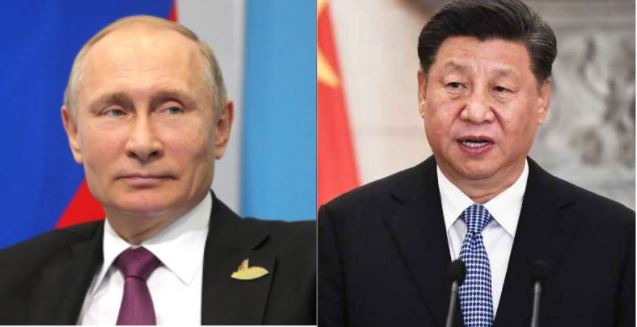Russian President Vladimir Putin will not let Chinese espionage in his country go scot free. China has been always on the Putin administration’s radar for spying upon the Russian military and defence designs. Of late, the Kremlin has also grown apprehensive about Beijing’s illegitimate interference in the Russian Far East and the Arctic region.
Now, Russia’s President has signed into law a bill which allows any politically active, foreign-funded individual or organisation to be labelled a “foreign agent.” All that the law signed on Wednesday requires for a foreign-funded individual to be designated as a foreign agent is that such person gathers information on Russian military or military-technical activities.
The law is a signal that Russia will identify China-backed spies and agents on its soil and crack down upon such elements. The latest law has expanded the ambit of those who can be recognised as a foreign agent in Russia. The foreign agent law was originally passed in 2012, but till now, it covered only media outlets, civil society groups, individual journalists and bloggers.
So, why did Putin suddenly feel the need to expand the scope of Russia’s foreign agent law? Let’s rewind by almost six months. In June, TASS, Russia’s largest news agency, reported that Valery Mitko, President of the St. Petersburg Arctic Social Sciences Academy, was charged with treason. Mitko was accused of spying for China. TASS quoted his lawyer as saying, “According to the investigation, during his trip to China, Mitko handed over classified materials to the Chinese intelligence. After his return to Russia, a search took place in his apartment; he was charged with [treason].”
Notably, the Arctic is one of the many contentious issues in the fragile Sino-Russian relationship. Russia strongly asserts the primacy of eight Arctic countries in the region and detests the thought of non-Arctic States playing a substantial role in the Arctic. But China challenges the Russian perception and calls itself a ‘Near-Arctic State’.
Even apart from the Arctic, Russia has also been very angry about Intellectual Property (IP) theft by the paper Dragon. Last year, Russia’s state-owned defence conglomerate, Rostec had even flagged the issue of Intellectual Property theft by the Middle Kingdom.
Yevgeny Livadny, Rostec’s chief of intellectual property projects, had said, “Unauthorized copying of our equipment abroad is a huge problem. There have been 500 such cases over the past 17 years. China alone has copied aircraft engines, Sukhoi planes, deck jets, air defense systems, portable air defense missiles, and analogues of the Pantsir medium-range surface-to-air systems.”
Till now, Putin used to tolerate Chinese President Xi Jinping’s IP theft. The Russian President is facing steep economic sanctions from the Western world. Therefore, he has to maintain a seemingly stable relationship with China- Russia’s main trading partner.
Yet, Putin can no longer let Chinese nuisance go on as usual. The Sino-Russian relationship has been getting irreparably strained. Xi’s China has been staking claim over parts of the Russian Far East region. Also, Xi’s expansionism has gone as far as the Arctic region, which is a part of Moscow’s sphere of influence in the Russian President’s perception.
In fact, Putin is leading a campaign to militarise the Arctic region. Hypersonic missile system, anti-satellite missile and extreme-weather small weapons- Putin’s Russia is testing all kinds of weapons to protect the Arctic region. Therefore, the Kremlin cannot afford to let China-backed spies access classified information about Russia’s Arctic military strategy.
Russia has thus made up its mind to protect sensitive military information. Putin is going to make Xi regret sponsoring espionage on Russian soil.
